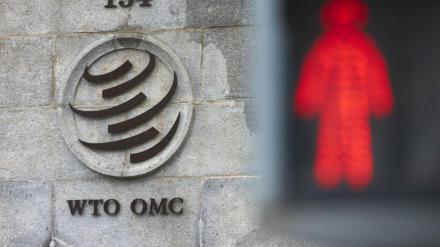By Abhijit Das
With less than four months to go for the 13th Ministerial Conference (MC-13) of the WTO, a meeting of the senior officials (SOM) from a large number of WTO members was organised in Geneva on October 23-24. The broad objective of the meeting was to prepare the ground for a successful outcome at MC-13, which is scheduled to be held in February 2024 in Abu Dhabi. The summary of the meeting prepared by the director general of the WTO and the chairman of the General Council of the WTO as co-chairpersons of the SOM suggests that the path ahead for India and many other developing countries has become more difficult than before.
If we are to go by the report, it would appear that the approach of the developed countries on many key issues has garnered the support of the senior officials collectively. At many places, the report uses “several”, “many” and “a number of” to indicate the traction for the stand of the developed countries. On the other hand, subject to a few exceptions, the line of India and many other developing countries was ostensibly supported only by “some” senior officials. What could explain this trend and what are its implications on the substantial issues for MC-13? These questions merit some examination.
As a threshold issue, it must be mentioned that the report of the SOM is not a document negotiated and endorsed by the WTO membership. Instead, it has been prepared under the “own responsibility” of the DG WTO and the General Council chair. No doubt these functionaries would have attempted to remain objective and neutral in their assessment of the support for approaches of the different countries on various issues. However, the possibility of some degree of subjectivity clouding their judgment cannot be ruled out. It is also possible that while the developed countries were openly supportive of each other’s positions, some developing countries might not have been very articulate in supporting positions that they have otherwise been espousing over the many months in the recent past at the WTO.
What is the substance of the outcome of the SOM, as contained in the summary of the meeting? In respect of reforming the dispute settlement system, the report mentions that the ongoing informal process received “overwhelming” strong support from the senior officials. This is in sharp contrast to the perspective held by many developing countries that as this process is considerably non-transparent and non-inclusive, there is a need to shift the discussions to a formal mode of engagement. Further, the report remains silent on the key demand of many developing countries—restoration of the Appellate Body, which has been paralysed by the US.
In respect of the contentious issue of deliberative function under WTO reform, the summary report mentions that “many” senior officials sought a package at MC-13 that could include trade and industrial policy, trade and environmental sustainability and inclusivity, gender equality, MSMEs, etc. The implication of the report is clear. Even in the absence of any multilaterally mandated background work, minsters will provide guidance on how WTO should move forward on issues such as gender, MSME, labour, environment, etc, most of which are outside the ambit of the WTO agreements. This will facilitate the path for launching multilateral negotiations on these issues—something that has been strongly opposed by most developing countries in the past.
In respect of integrating the outcome of Joint Statement Initiatives (JSI) on Investment Facilitation and Domestic Regulations into the WTO family of agreements, the report states the following: “we heard the call to sharpen the WTO’s decision-making process by exercising responsible consensus”.
The mention of “responsible consensus” is a direct exhortation to the opponents of JSIs, particularly India and South Africa, to soften their opposition to the JSI negotiations, which have been undertaken without any multilateral mandate. It also marks a step forward in interpreting consensus in different situations—a highly problematic development.
Turning to agriculture, the report contains many problematic elements. The matter of most concern is that specific multilateral mandates to find solutions to issues raised by a large number of developing countries are sought to be jettisoned.
These include mandates on permanent solution to the problem of public stockholding, reducing cotton subsidies and special safeguard mechanism. Instead, the suggestion is to go back to the negotiating table and start negotiations on these issues afresh, and link them with negotiations on other issues such as tariff reduction and market access.
On food security, the report mentions that there was a strong engagement in favour of a food security outcome at MC-13. However, this is at best a pyrrhic victory as the suggestion is to “agree on broad parameters to guide the negotiations post-MC13 to reach substantiative outcomes by MC-14 which would strengthen the agricultural trading system”. Not only is this a delaying tactic, it will also divert the attention away from public stockholding to other ways of ostensibly meeting food security, including through enhancing imports and facilitating imports of GM food.
In conclusion, while the summary report does not command the credibility of an outcome negotiated by consensus, it cannot be completely dismissed. If the suggestions contained in it set the narrative and blueprint for the way ahead towards MC-13, it would stack the deck against India and a large number of developing countries.
These countries will be extremely hard put to defend their interests at MC-13 and are likely to be saddled with highly adverse results at the WTO. It is up to India to decide whether, as the voice of the Global South, it should articulate serious concerns on the summary report and work closely with other developing countries to meet their collective negotiating objectives, or remain silent and claim that it is a part of the solution and not a part of the problem.
The author is an international trade expert. Views expressed are personal.
